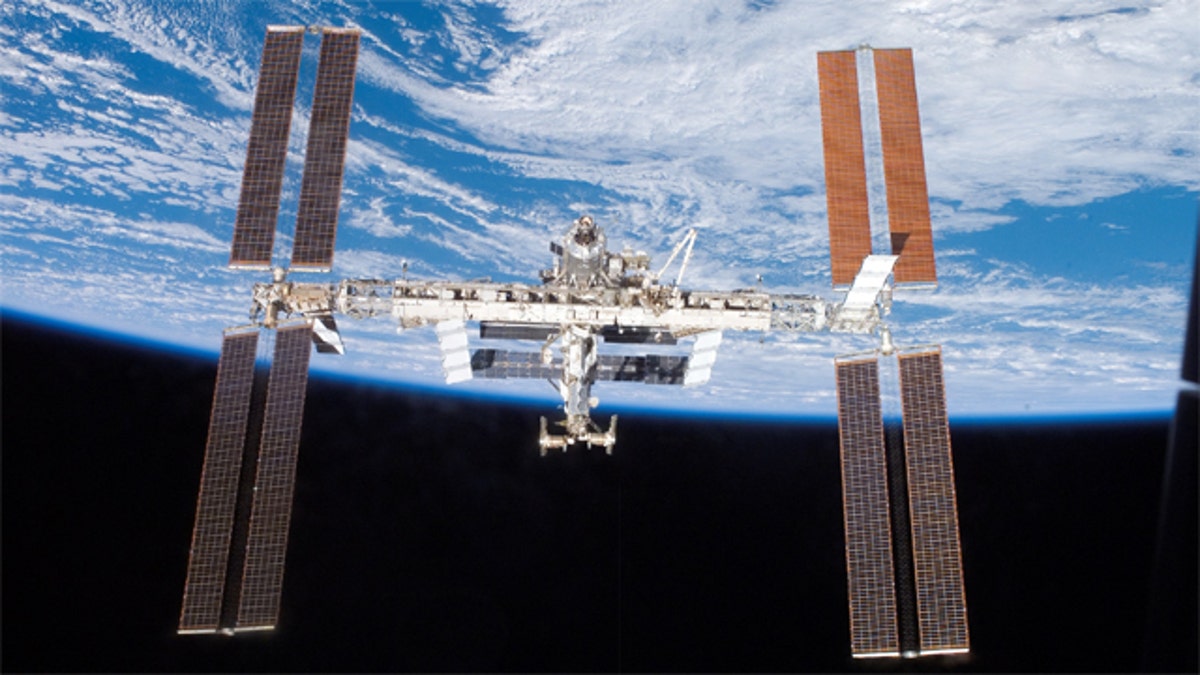
Astronauts are prepping to leave -- but not shutdown -- the International Space Station (NASA)
Houston, YOU have a problem.
With no space shuttles to take astronauts to the International Space Station, the U.S. relies upon Russian rockets. But amid deep concerns over a recent rocket crash, Russia on Tuesday announced it was postponing the launch of the latest space station crew to Nov. 12 -- mere days before before the final astronauts on the orbiting laboratory are due to return to Earth.
That makes the potential for an unmanned International Space Station very real -- and NASA could have seen it coming, said Christopher C. Kraft, the former director of NASA's Manned Spaceflight Center.
"You can't put your head in the sand about the fact that you're going to have failures," he told FoxNews.com. Failures are to be expected in vehicles as old as the Soyuz -- or the American shuttle for that matter, Kraft said.
The space shuttle was a crucial alternative, said Art Harman, director of The Coalition to Save Manned Space Exploration.
"The political and budgetary rush to scrap the shuttles was so strong that all the risks inherent in relying upon any single source, much less the Russian system in particular, were downplayed or ignored," he told FoxNews.com.
"They've got no prepared alternate landing site for routine use, which therefore forces home our crews in each case a month earlier than the Soyuz expiration dates alone would require. That's incredible negligence," he said.
NASA believed the Soyuz craft would keep the International Space Station manned and supplied while the nascent commercial space industry in the U.S. developed replacement spacecraft. But Russia has encountered a disastrous string of issues that may make that policy untenable.
In a string of spectacular failures, Russia has lost four spacecraft over the past 10 months. In December, a rocket and its payload of three communications satellites fell into the Pacific Ocean after failing to reach orbit. A military satellite was lost in February, and in mid-August the Express-AM4, described by officials as Russia's most powerful telecommunications satellite, was lost.
"Many of the systemic weaknesses of the Soyuz system were not a big deal in the shuttle era. Yet now they indeed become of paramount concern to the survival of our $100 billion investment in America's space future," Harman warned.
Without shuttles, and without Soyuz, the space station may be in danger.
"The whole thing is a damn house of cards," Kraft told FoxNews.com. "Without the space shuttle, you leave yourself extremely vulnerable to losing the whole space station," he said.
That has far greater implications than it sounds, he noted. For example, NASA has been been promoting the privatization of space flight as a replacement for the space shuttle.
"Without the space station, there is no market for the commercial vehicles. Zero," Kraft said.
Astronauts have been living aboard the station, without interruption, for almost 11 years. NASA has insisted last month's accident will have no adverse influence on the International Space Station crew, because their existing supplies of food, water and oxygen are sufficient.
"That's true," Kraft told FoxNews.com. "They have a very good complement of equipment. The question is, do they have the right equipment? And can they use if it they have to?"
He noted that extra-vehicular activity, or EVA, was often required to repair the station or add a new part. If the station is damaged, however, how would crew perform that operation?
"If you've got a damaged space station and you couldn't do an EVA, the U.S. shuttle would have been the only other vehicle with an EVA capability."
By retiring the shuttle, he said, we've impacted our ability to perform that and other operations.
"It was the best vehicle, best rocketship, best launch vehicle we have ever built in this country. And with modernization, it could be the vehicle to use for the next 20 years," Kraft said.








































